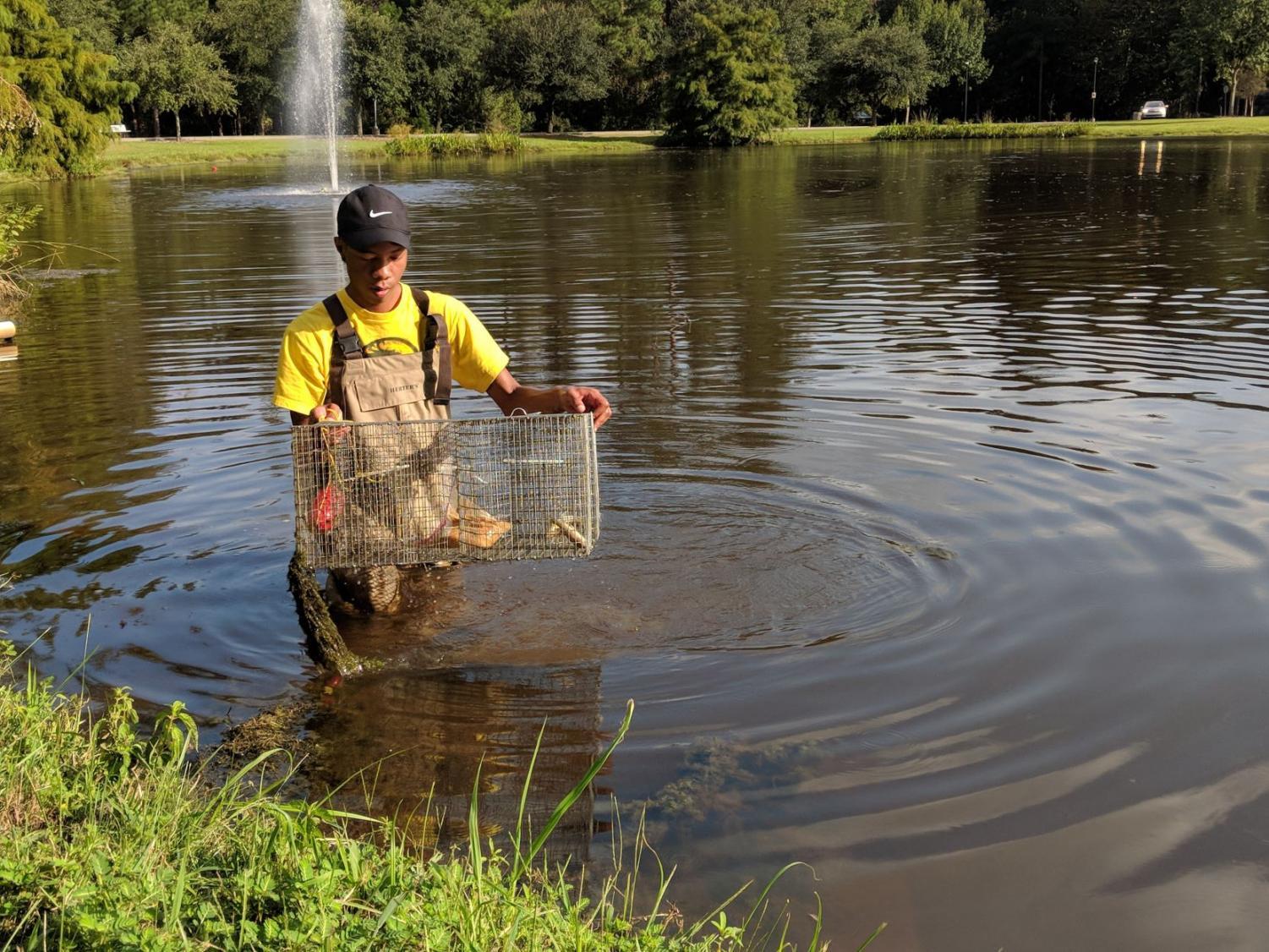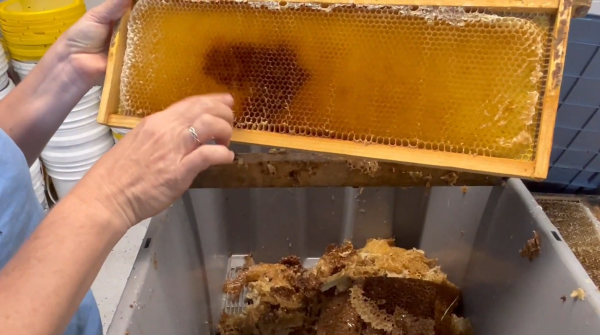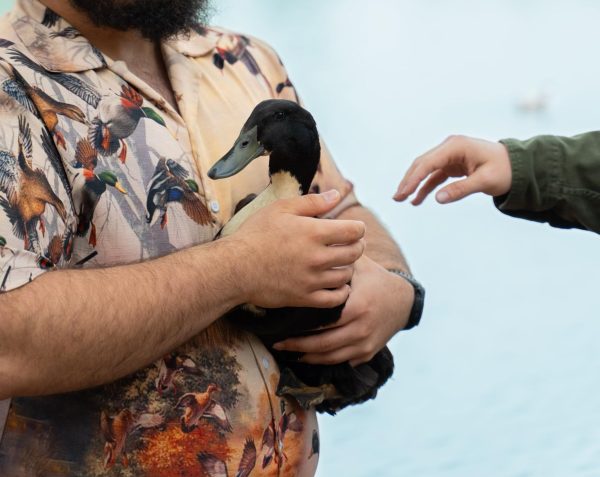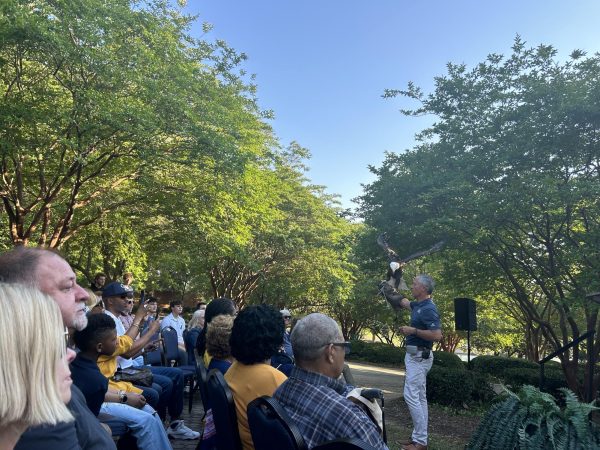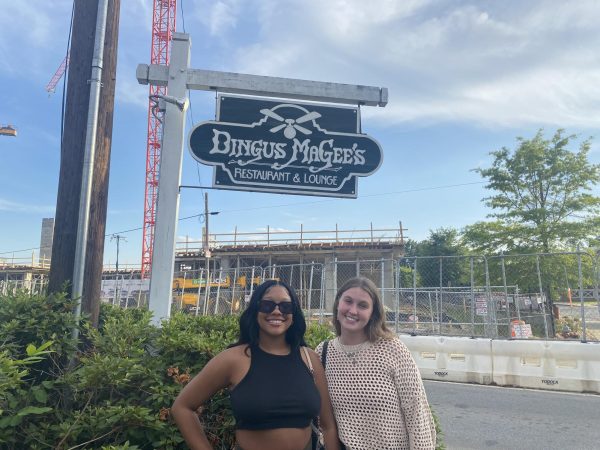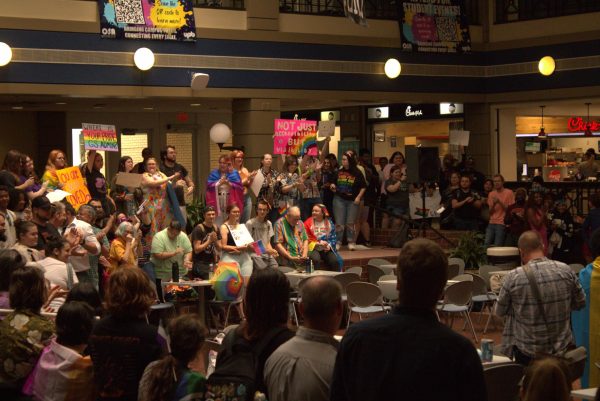Sustainability project seeks to monitor campus lakes following dredging
March 12, 2019
The Center for Sustainability approved a grant proposed by Assistant Professor Emily Kane, Ph.D., that will monitor campus lakes and ensure proper build up of wildlife.
Kane’s proposed her $30,000 project to the Sustainability Center during their FY2019 call for proposals as they strive to create a greener campus. Each year, projects ranging from $1,000 to $100,000 are proposed.
Of the 28 proposals submitted last year, 15 were approved that would cost a total of $266,997 according to the FY2020 request for proposals. Proposals can aim to reduce water, food, and energy waste, among other issues noted by students or faculty.
“This funding has allowed us to dedicate time and resources to understanding our ponds. By hiring graduate students to coordinate the survey efforts and data collection, we have been able to maximize our effort and chances of documenting the wildlife,” Kane said in an email.
She and Christian Cox, Ph.D., are overseeing the project with the help of both graduate and undergraduate students who help survey the ponds.
The dredging, which began in December 2017 and concluded in January 2018. Prior to this, there were 19 different species of fish found in the ponds on campus. As of now, the department has confirmed that there are four different species but has evidence that there could be more that have not been documented.
When asked when we might see more species Kane said, “The recovery process takes time. We have an incredible amount of biodiversity on campus, and in the coastal plain, and these native animals are well equipped to find and populate our ponds if given enough time. Keep in mind that the diversity that we observed before the dredging had about 80 years to accumulate.”
Ponds on campus that have a connection to outside bodies of water, like the pond outside the College of Education have already recovered significantly. For other places, like Lake Ruby and Lake Wells, it is anticipated that recovery will take longer because they are less connected to outside sources.
Kane pointed out that dredging is not an uncommon process in this part of the state because the purpose of many lakes here is to keep debris from flowing into downstream bodies of water. As the campus lakes recover, Kane wants to encourage students to allow nature to take its course as the lakes recover on their own. Introducing new species to the lake could potentially do more harm than good.
Savannah Johnson, The George-Anne Candidate, ganewsed@georgiasouthern.edu


